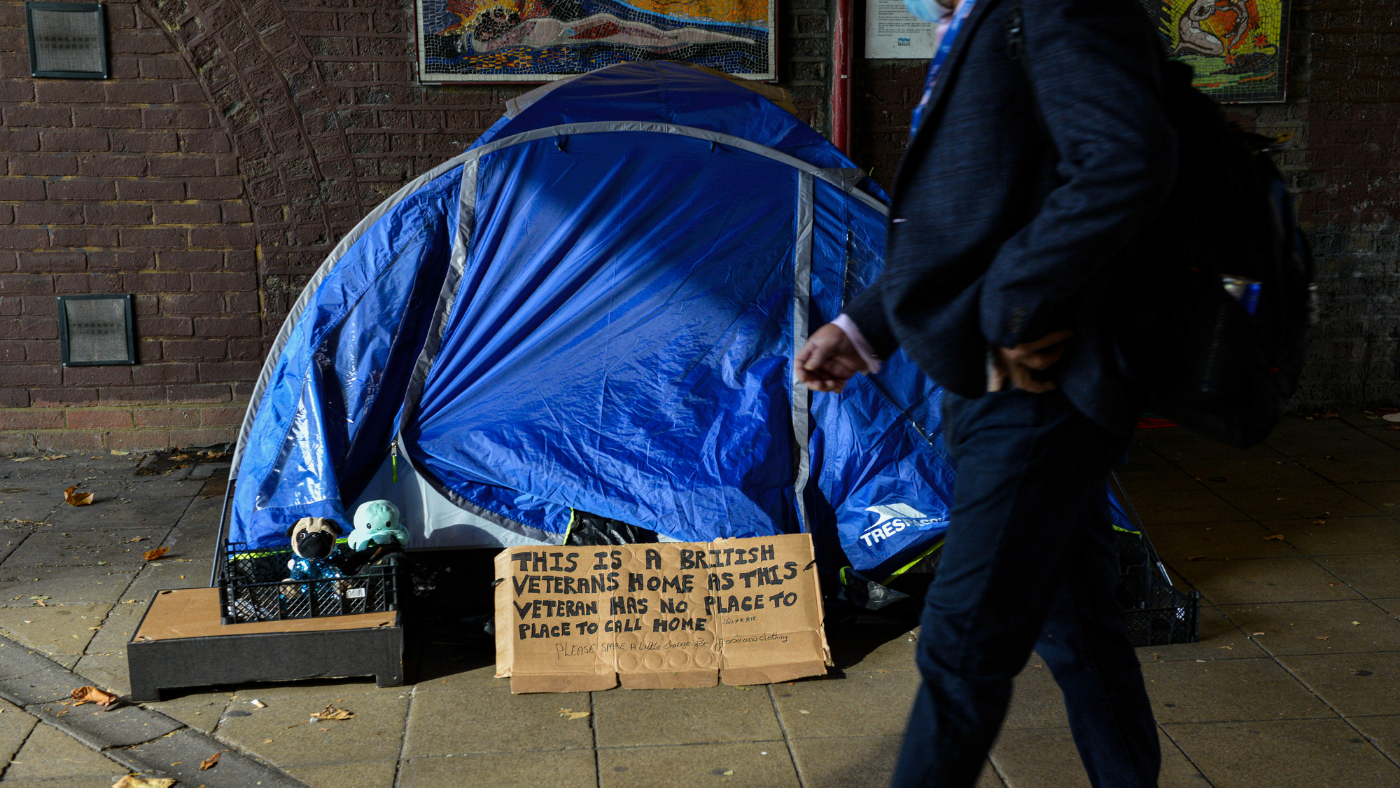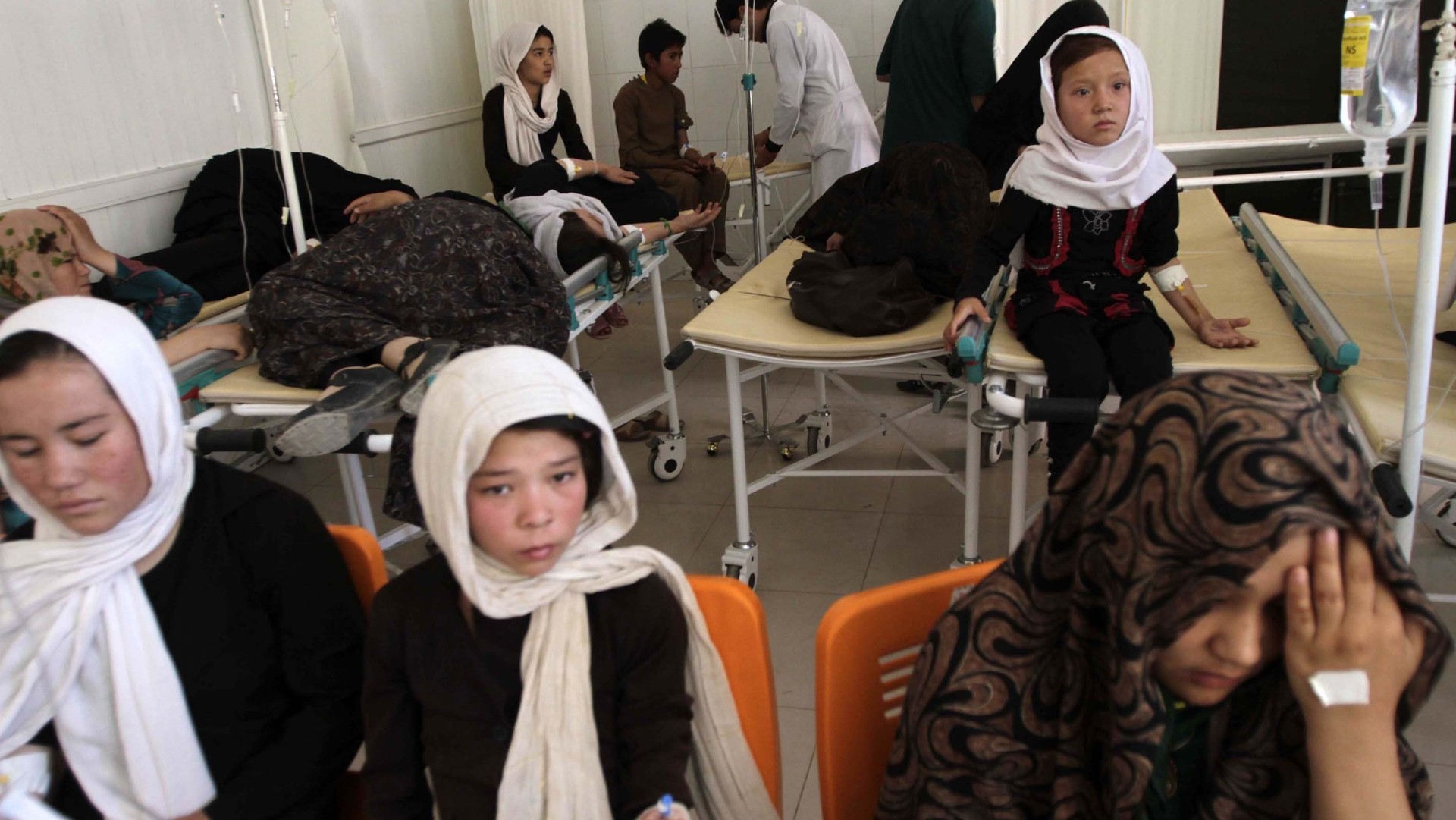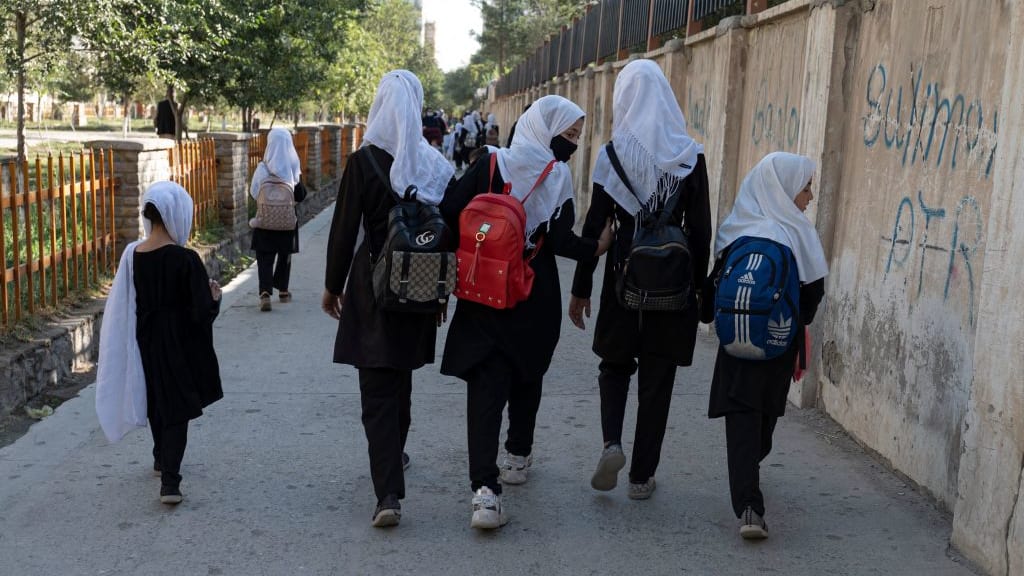‘Britain is suffering from an ever-dwindling supply of compassion’
Your digest of analysis from the British and international press

- 1. Suffering has become normalised in Britain. We can do better than this
- 2. The UK and the West need to help Afghanistan now more than ever
- 3. Once a prime minister’s authority goes, the end can be swift and brutal
- 4. How to protect your brain from injury
- 5. Why I’m choosing ‘conscious monogamy’ after being in an open relationship for four years
A free daily email with the biggest news stories of the day – and the best features from TheWeek.com
You are now subscribed
Your newsletter sign-up was successful
1. Suffering has become normalised in Britain. We can do better than this
Frances Ryan in The Guardian
on a compassion vacuum
“Look at British politics in recent years and one thing stands out”, writes Frances Ryan in The Guardian: “An ever-dwindling supply of compassion.” Brexit has “provoked” further division, and even the pandemic has seen “chilling callousness” as vulnerable people died “in large numbers with little fuss”. Cruelty is not a new phenomenon in Britain, says Ryan, but it’s “hard to shift” the feeling that “things are getting worse”. Suffering has been normalised and “these unfeeling views are not born in a vacuum”. They come instead from “a carefully engineered hostile environment fostered by sections of the media and political classes”, with dehumanisation “a key part of political discourse in recent years”. Compassion must “represent a commitment to wide-reaching structural changes” and such policies “make good economic sense”. We must have faith that a fairer society and economy is possible, Ryan adds. “Compassion’s greatest enemy is fatalism”, and “Britain can be better than this.”
The Week
Escape your echo chamber. Get the facts behind the news, plus analysis from multiple perspectives.

Sign up for The Week's Free Newsletters
From our morning news briefing to a weekly Good News Newsletter, get the best of The Week delivered directly to your inbox.
From our morning news briefing to a weekly Good News Newsletter, get the best of The Week delivered directly to your inbox.
2. The UK and the West need to help Afghanistan now more than ever
The Independent Editorial board
on international negligence
Afghanistan’s humanitarian crisis “is about to get worse”, says The Independent’s editorial board. Life in parts of the country is becoming “unbearable”, and the “tragedy” will be felt by neighbouring countries Pakistan and Iran “who will be faced with a further wave of Afghan refugees and migrants”. The UK needs to offer safe passage, but “there is little sign of any western or UK intent to solve this coming migration crisis ‘at source’”. Sanctions on the Taliban government “have triggered a collapse in the currency and hyperinflation”. Food is scarce, with around 3.2m children aged five and under expected to suffer with acute malnutrition by the end of the year. Those who do make it to the UK will be “criminalised under Priti Patel’s latest futile clampdown on migration”, which is “in effect a renunciation of the 1951 European Convention on Human Rights”. “The British abandonment of its Afghan allies was, and is, a moment of national shame.”
A free daily email with the biggest news stories of the day – and the best features from TheWeek.com
3. Once a prime minister’s authority goes, the end can be swift and brutal
Philip Johnston in The Telegraph
on changing tides
Writing in The Telegraph, Philip Johnston wonders if a “prank has been played” on the prime minister during his address to the CBI on Monday. “As he rummaged through the pages looking for something, anything to latch onto”, he “brilliantly he remembered he’d been to Peppa Pig World” and riffed on that. “It was vintage Boris”, writes Johnston, and “once upon a time, it would have had his audience in stitches”. But not now. The speech “bombed”, triggering “head shaking” in the Tory party and “sniggering from his detractors”. How Johnson speaks is one reason he appeals to many, because “he uses the language most people understand”. But when public perception switches, a politician’s strengths become “the stick with which you are beaten, mercilessly”. There comes a point where Johnson’s “full tank of goodwill is left to run on fumes alone and we may well have reached it”, Johnston adds. “The end, when it comes, will be swift and brutal.”
4. How to protect your brain from injury
Best McQuiston in The Wall Street Journal
on health warnings
“Football season is in full swing, which means concussions are on the minds of players and fans,” writes neurologist Dr Beth McQuiston in The Wall Street Journal. But brain injuries aren’t a problem only for contact-sports athletes, with at least 69m people globally suffering from these traumatic injuries each year. We should monitor our brains “as conscientiously as we do our hearts and joints”, but “too many people let blows to the head go unevaluated, despite the potentially dire long-term consequences”. Diagnosing traumatic injuries is also “becoming more sophisticated”, with CT scans and blood tests now available. People “generally do something” about high cholesterol or blood pressure, by changing their diet, exercising more, or taking medication. “We should be just as mindful of our brain health – if not more so,” adds McQuiston.
5. Why I’m choosing ‘conscious monogamy’ after being in an open relationship for four years
Lucy Fry on The i news site
on relationship statuses
Lucy Fry was “unconsciously monogamous” from the ages of 15 to 35, she writes on The i news site. Now, after trying “conscious non-monogamy and polyamory”, she is “consciously monogamous”. The distinction may seem subtle, but to her it is “profound”. “If unconscious monogamy is like driving on autopilot, following other cars, and paying little attention to surroundings, then conscious monogamy is driving alert, taking the route and speed that’s right for you.” Many adopt monogamy because it’s “the blueprint” they grew up with, writes Fry. She and her wife “opened up” their relationship after eight years, “which was liberating in some ways and agonising in others”. After her marriage ended, she “had the chance to reassess”. Returning to monogamy was a choice, “one that I can make in full awareness that there are other viable options”. Fry’s conscious monogamy “is about me” more than her partner, the relationship with oneself “a matter of psychic survival”. How else can you be truly intimate with someone else, “if you aren’t willing to see and know yourself”?
-
 The ‘ravenous’ demand for Cornish minerals
The ‘ravenous’ demand for Cornish mineralsUnder the Radar Growing need for critical minerals to power tech has intensified ‘appetite’ for lithium, which could be a ‘huge boon’ for local economy
-
 Why are election experts taking Trump’s midterm threats seriously?
Why are election experts taking Trump’s midterm threats seriously?IN THE SPOTLIGHT As the president muses about polling place deployments and a centralized electoral system aimed at one-party control, lawmakers are taking this administration at its word
-
 ‘Restaurateurs have become millionaires’
‘Restaurateurs have become millionaires’Instant Opinion Opinion, comment and editorials of the day
-
 ‘We should be scared’: the poisoning of schoolgirls in Afghanistan
‘We should be scared’: the poisoning of schoolgirls in Afghanistanfeature Children hospitalised in allegedly deliberate mass attacks is latest in series of incidents going back decades
-
 Boris Johnson shocks UK by resigning from Parliament
Boris Johnson shocks UK by resigning from ParliamentSpeed Read
-
 Officials believe dozens of girls in Afghanistan were deliberately poisoned at school
Officials believe dozens of girls in Afghanistan were deliberately poisoned at schoolSpeed Read
-
 Bees delay flight for three hours
Bees delay flight for three hoursfeature And other stories from the stranger side of life
-
 Taliban kills mastermind of Kabul airport suicide bombing
Taliban kills mastermind of Kabul airport suicide bombingSpeed Read
-
 Sudan evacuation: has Foreign Office learnt the lessons from Afghanistan?
Sudan evacuation: has Foreign Office learnt the lessons from Afghanistan?Today's Big Question Failings of chaotic withdrawal from Kabul prompt return of foreign secretary and airlift of Britons from Khartoum
-
 ‘The UK’s malaise will not end with the Prime Minister’s exit’
‘The UK’s malaise will not end with the Prime Minister’s exit’Instant Opinion Your digest of analysis from the British and international press
-
 ‘Police tactics are not getting worse, they are simply being filmed’
‘Police tactics are not getting worse, they are simply being filmed’Instant Opinion Your digest of analysis from the British and international press